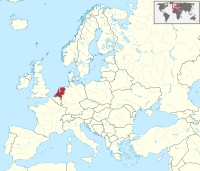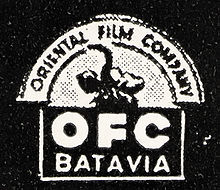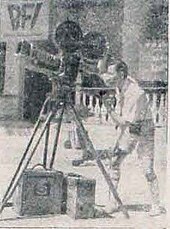Portal:Netherlands
Welcome to the Netherlands Portal
Welkom bij het Nederlandportaal!

|

|

| |
The Netherlands, informally Holland, is a country in Northwestern Europe, with overseas territories in the Caribbean. It is the largest of the four constituent countries of the Kingdom of the Netherlands. The Netherlands consists of twelve provinces; it borders Germany to the east and Belgium to the south, with a North Sea coastline to the north and west. It shares maritime borders with the United Kingdom, Germany, and Belgium. The official language is Dutch, with West Frisian as a secondary official language in the province of Friesland. Dutch, English, and Papiamento are official in the Caribbean territories.
The Netherlands has been a parliamentary constitutional monarchy with a unitary structure since 1848. The country has a tradition of pillarisation (separation of citizens into groups by religion and political beliefs) and a long record of social tolerance, having legalised prostitution and euthanasia, along with maintaining a liberal drug policy. The Netherlands allowed women's suffrage in 1919 and was the first country to legalise same-sex marriage in 2001. Its mixed-market advanced economy has the eleventh-highest per capita income globally. The Hague holds the seat of the States General, Cabinet, and Supreme Court. The Port of Rotterdam is the busiest in Europe. Schiphol is the busiest airport in the Netherlands, and the fourth busiest in Europe. Being a developed country, the Netherlands is a founding member of the European Union, eurozone, G10, NATO, OECD, and WTO, as well as a part of the Schengen Area and the trilateral Benelux Union. It hosts intergovernmental organisations and international courts, many of which are in The Hague. (Full article...)
Selected biography
Muller started his career as a businessman, trading with East and West Africa. In his mid-twenties he travelled to Zanzibar, Mozambique, and South Africa for business purposes, but showed himself a keen ethnographer as well, collecting ethnographic artifacts and writing reports about the societies and people he encountered on his way. In 1890, Muller retired from business for personal reasons, and went to Germany to study ethnography and geography. He graduated with a Ph.D. dissertation four years later.
Did you know (auto-generated)

- ... that the H. J. Lovink Pumping Station, a national monument of the Netherlands, was used to reclaim the Flevopolder?
- ... that Rafflesia meijeri was named after Dutch botanist Willem Meijer for his work on the conservation and study of Rafflesia plants?
- ... that despite losing almost one thousand men capturing Malacca in 1641, the Dutch East India Company did not invest much time or energy into it afterward?
- ... that Isabella Correa was one of the few Jewish women poets active in the Netherlands before the 19th century?
- ... that Dutch rabbi Meijer de Hond, who grew up in poverty, was known as the Volksrebbe ('people's rabbi') for his popularity among the Jewish poor of Amsterdam?
- ... that two American officers bribed Japanese troops with their watches to have Dutch medical officer Henri Hekking allocated to their prisoner of war camp?
Categories
Related portals
Featured content
Extended content
| ||
|---|---|---|
|
This page gives an overview of all featured content ( Featured articles
Featured lists
|
Things you can do

The Dutch Wikiportal is currently under construction. Help would be greatly appreciated!
See also:
Add yourself to the category of Wikipedians located in the Netherlands.
Wikiprojects

|
You are invited to participate in the WikiProject Netherlands, a WikiProject dedicated to developing and improving articles about the Netherlands. |
















![Image 3 Indonesian rupiah Banknotes: Bank of Indonesia The rupiah is the national currency of Indonesia. Introduced in 1946 by Indonesian nationalists fighting for independence, the currency replaced a version of the Netherlands Indies gulden which had been introduced during the Japanese occupation in World War II. In its early years the rupiah was used in conjunction with other currencies, including a new version of the gulden introduced by the Dutch. Since 1950, it has had a lengthy history of inflation and revaluation. As of August 2018[update] '"`UNIQ--nowiki-00000018-QINU`"' , the currency—which is issued and controlled by the Bank of Indonesia—is trading for more than 14,600 rupiah to the United States dollar. This note, denominated 1,000 rupiah, is part of the 2000 series. It depicts Pattimura, a National Hero of Indonesia, on its obverse, and the islands of Maitara and Tidore on its reverse. See other denominations: Rp 2,000, Rp 5,000, Rp 10,000, Rp 20,000, Rp 50,000, Rp 100,000 More selected pictures](http://upload.wikimedia.org/wikipedia/commons/thumb/e/e5/1000_rupiah_bill%2C_2000_series_%282013_date%29%2C_processed%2C_obverse%2Breverse.jpg/120px-1000_rupiah_bill%2C_2000_series_%282013_date%29%2C_processed%2C_obverse%2Breverse.jpg)








































































































































































